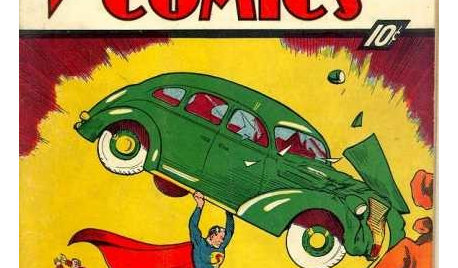10,000 hours
woodyoak zone 5 southern Ont., Canada
12 years ago
Related Stories

KITCHEN MAKEOVERSSee a Kitchen Refresh for $11,000
Budget materials, some DIY spirit and a little help from a friend turn an impractical kitchen into a waterfront workhorse
Full Story
BEFORE AND AFTERSA ‘Brady Bunch’ Kitchen Overhaul for Less Than $25,000
Homeowners say goodbye to avocado-colored appliances and orange-brown cabinets and hello to a bright new way of cooking
Full Story
HOUZZ TOURS13 Character-Filled Homes Between 1,000 and 1,500 Square Feet
See how homeowners have channeled their creativity into homes that are bright, inviting and one of a kind
Full Story
REMODELING GUIDESOne Guy Found a $175,000 Comic in His Wall. What Has Your Home Hidden?
Have you found a treasure, large or small, when remodeling your house? We want to see it!
Full Story
SMALL HOMES28 Great Homes Smaller Than 1,000 Square Feet
See how the right layout, furniture and mind-set can lead to comfortable living in any size of home
Full Story
HOUZZ TOURSThe Top 10 Home Tours on Houzz
See the most popular homes from the 1,000 profiled on Houzz, from an edgy garage to a sparkling Southern belle
Full Story
BATHROOM DESIGNHow to Install a Toilet in an Hour
Putting a new commode in a bathroom or powder room yourself saves plumber fees, and it's less scary than you might expect
Full Story
SHOP HOUZZHouzz Products: Al Fresco Happy Hour
Make your own backyard the best tapas bar in town with these outdoor furnishings and entertaining essentials
Full Story
STORAGE2 Weeks + $2,000 = 1 Savvy Storage Shed
This homeowner took backyard storage and modern style into his own hands, building a shed with reclaimed redwood and ingenuity
Full Story
LIVING ROOMSA Living Room Miracle With $1,000 and a Little Help From Houzzers
Frustrated with competing focal points, Kimberlee Dray took her dilemma to the people and got her problem solved
Full StoryMore Discussions











adriennemb2
inkognito
Related Professionals
Owings Mills Landscape Architects & Landscape Designers · Cudahy Landscape Contractors · Dedham Landscape Contractors · Dickinson Landscape Contractors · Long Branch Landscape Contractors · Peoria Landscape Contractors · Pleasant Hill Landscape Contractors · Shorewood Decks, Patios & Outdoor Enclosures · Boise Decks, Patios & Outdoor Enclosures · Houston Decks, Patios & Outdoor Enclosures · Lansdale Decks, Patios & Outdoor Enclosures · Midwest City Decks, Patios & Outdoor Enclosures · Manassas Swimming Pool Builders · Pflugerville Swimming Pool Builders · South Miami Heights Swimming Pool Builderskarinl
woodyoak zone 5 southern Ont., CanadaOriginal Author
woodyoak zone 5 southern Ont., CanadaOriginal Author
adriennemb2
drtygrl
woodyoak zone 5 southern Ont., CanadaOriginal Author